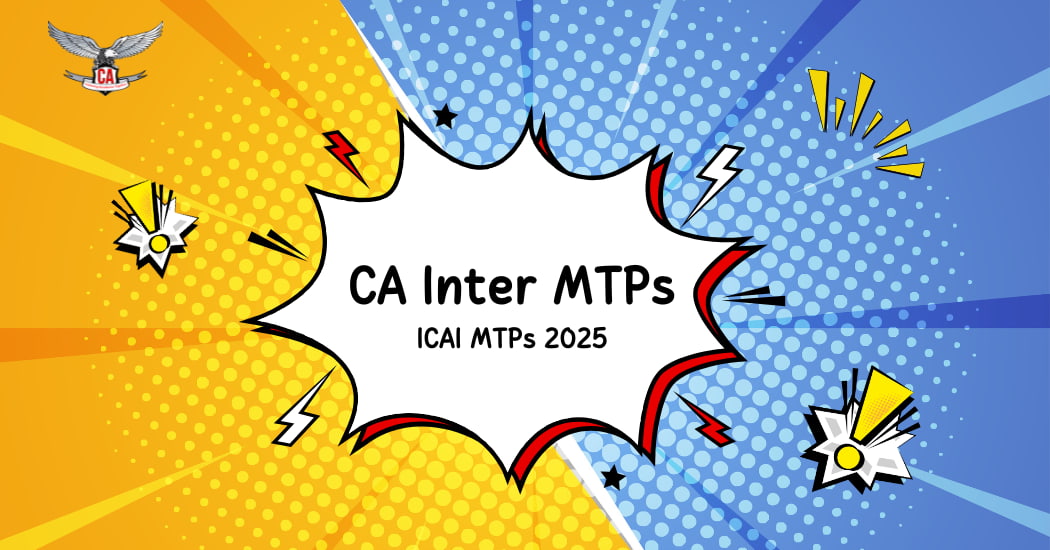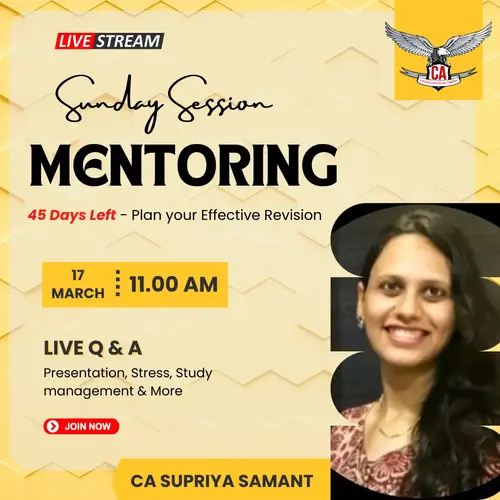How to study Inter Law Effectively | ABC Analysis | Past exams trend | Important
While studying for CA Inter law, it becomes important to prioritize the topics to ensure that your mind space is not overwhelmed and that you make the best out of your ability to memorize well. Here are the high-priority topics to study:
You will require multiple revisions for this subject as you cannot be liberal with the language while quoting laws
Understand even theory before learning it. Understand, what is the provision of law that has been made, what are the reasons, what has actually been done, & then you will see that it will stick in your mind.
You will not be able to mug up the terms until you understand them. Every law has a reason to exist. Understand the reasons
Go through the amendments carefully and thoroughly. These are quite critical for the exam.
Start with The Companies Act, 2013 – Sections 1 to 148
Unit -1Preliminary, Incorporation Of Company, Prospectus and allotment of securities, Share capital and debentures.
Unit -2 Acceptance of deposits by company, Registration of Charges, Management & Administration.
Unit -3 Declaration and payment of dividend, Accounts of Companies, Audit and Auditors.
After that start The Indian Contract Act, 1872: (Specific contracts covered from section 123 onwards): Contract of Indemnity and Guarantee, Bailment, Pledge, Agency
The Negotiable Instruments Act, 1881: Meaning of Negotiable Instruments, Characteristics, Classification of Instruments, Different provisions relating to Negotiation, Negotiability, Assignability, Right and Obligation of parties, presentment of Instruments, Rules of Compensation
The General Clauses Act, 1897: Important Definitions, Extent and Applicability, General Rules of Construction, Powers and Functionaries, Provisions as to Orders, Rules, etc. made under Enactments, Miscellaneous
Interpretation of statutes: Rules of Interpretation of statutes, Aids to interpretation, Rules of Interpretation/construction of Deeds and Documents.
Check It Also: How to prepare for CA Inter EIS-SM
Weightage and No. of Revision
Chapter No. | Chapter Name | Marks weightage | No of revision |
| Part I: Company Law | ||
| Preliminary | 10 | 2 | |
| Incorporation of company and matters incidental Thereto | 6 | 2 | |
| Prospectus and Allotment of Securities | 12 | 3 | |
| Share capital and Debentures | 2 | 1 | |
| Acceptance of Deposits by companies | 6 | 2 | |
| Registration of Charges | 10 | 3 | |
| Management and Administration | 8 | 2 | |
| Declaration and payment of dividend | 6 | 3 | |
| Accounts of Companies | 5 | 2 | |
| Audit and Auditors | 9 | 2 | |
| Part II: Other Laws |
|
|
The Indian Contract Act,1872
| 10 | 3 | |
| The Negotiable Instruments Act, 1881 | 10 | 3 | |
| The General Clauses Act | 7 | 3 | |
| Interpretation of statutes | 8 | 3 |
Study Plan/ ABC Analysis
Small and Easy | Fair | Medium | Difficult and Need more practice |
Preliminary, Incorporation Of Company, Prospectus and allotment of securities, Share capital and debentures | Acceptance of deposits by company, Registration of Charges, Management & Administration | Declaration and payment of dividend, Accounts of Companies, Audit and Auditors | The Indian Contract Act, 1872, The Negotiable Instruments Act, 1881, The General Clauses Act, 1897, Interpretation of statutes |
2 times Revision only
Take 4 to 5 days to Revise
| 3 times Revision
Take 5 days and practice, focus more on questions | 3 times Revision
8 days, solve maximum questions, 80% focus on solving questions only | 2 Times Revision
Study 4 to 6 adjustments per day, Cover all in 6 to 8 days |
From which chapter to start preparing
Corporate and Other Laws covers the two sections. One of them is companies law and second one is other laws. Company Law covers 60 marks while the remaining part covers 40 marks.
Company Law covers a major portion and also scoring. Other Laws cover 40 marks but as much lengthy as company Law.
Start your preparation from Small and easy chapters of Companies Act like preliminary incorporation of co. etc.
After that prepare all remaining chapters of companies act after completing companies Act start other law do more stress on Indian contract act and Negotiable instruments Act, 1881 and others
Understand the concepts very well because law is all about interpretation. Grip on the sections is important basically on the matter. If you can remember the section number than it is well and good but if you are not sure about the section number then dont write the section number as it will deduct your marks more than what you get after writing it.
Practice the past attempt papers as well as solve the case studies, it will help you in interpreting laws.
After reading any topic, quickly attempt MCQs of the same. It will be very helpful from conceptual understanding point of view.
More scoring part
Companies act is always scoring section whether it is law or audit. Most marks are scored from this section.
Most Important Topics of companies act:
- Deposits
- Incorporation
- Share Capital
- Dividend
- Buy-back Prohibition
- ESOP
- Debentures
- Accounts
Indian Contract Act:-
- Case study based on” Acceptance of Offer” &” Bailment “.
- Offer & rules for an offer.
- Capacity to contract.
- Circumstances under which doctrine of Supervening Impossibility not applicable.
Read More: How to prepare for CA Inter Advance Accounting
Past trending Chapters
Topics | Questions in Past exams | |
| ||
| Part I: Company Law |
|
|
| Preliminary | 6 | 6 |
| Incorporation of company and matters incidental Thereto | 0 | 10 |
| Prospectus and Allotment of Securities | 6 | 12 |
| Share capital and Debentures | 13 | 7 |
| Acceptance of Deposits by companies | 6 | 6 |
| Registration of Charges | 6 | 6 |
| Management and Administration | 19 | 14 |
| Declaration and payment of dividend | 6 | 6 |
| Accounts of Companies | 10 | 7 |
| Audit and Auditors | 6 | 6 |
| Part II: Other Laws |
|
|
The Indian Contract Act,1872
| 15 | 13 |
| The Negotiable Instruments Act, 1881 | 13 | 13 |
| The General Clauses Act | 10 | 10 |
| Interpretation of statutes | 10 | 10 |
Which questions to attempt first
In first 20 minutes, attempt MCQs and leave those which will consume time, which will be tackled in last 1 hour. After attempting MCQs, quickly come to companies act questions. Try to answer them patiently and cover all the necessary points. Remember – Length of the answer doesnt matter, what matter is points coverage. You need to cover all the necessary points in your solution.
Indian Contract act / negotiable / other questions should be attempting in last 60 to 70 minutes.
There are 4 parts to answer case study type questions.
First part is write heading – Mention name of the section and its number if you are sure
Second part – Related Provision, in this your first two lines matter a lot. It will judge the quality of your language. Write these two lines very smartly
Third part – Facts of the case and analysis, here you can use your own language
Fourth part – Conclusion with reference and reason are required. Mostly student end up by giving the decision but not cover reason behind it. Shortly cover reason in 2-3 lines.
Important Questions/Amendments
Incorporation of company
Pre-incorporation contract
Registered office, Alteration of Memo & Artcile
Formation & incorporation of OPC , doctrine of ultra vires, doctrine of constructive notice, doctrine of indoor management and its exceptions
Types of companies like holding, subsidiary, dormant, small companies
Civil liability for misstatement in prospectus, underwriting commission, private placement, calls in advance
Right, bonus shares and transfer of securities
Case studies on above topics will be asked so in that case practice of mcq becomes quite important in cracking the case study.
Amendments are separately provided
Common Mistakes / Tips
Practice doesnt mean you have to just read the questions. You must write down the questions and their answers. Appear for as many Mock Tests as you can.
Presentation plays a very important role in scoring you well and especially in the theory papers. For a better presentation, you can refer ICAI Practice Manual or Study Material or Suggested answers.
Double check if the question number is written properly. Kindly mention the sub part of the question as well. The silliest way to get a zero for an answer is writing the correct answer for a wrong question.
Do not write incomplete answers. Even if you dont know the exact answer, try to make it a complete answer. What I mean here is do not leave the sentence incomplete. This is more of a psychological hack. Incomplete answers catch the attention of the examiner easily. You never know an incorrect but complete answer may fetch you full marks.
For more information, stay updated with us
At last, keep yourself fit and healthy. Take proper sleep, it helps you to finely attempt your paper. Hope you find these tips helpful.
Related:
- How to prepare for CA Inter MCQs
- How to prepare CA Final Indirect Tax Effectively | Important Topics | ABC analysis
- Practice Tips to Score 60+ in CA Final Advanced Auditing & Professional Ethics
Never forgot to Attempt Test Papers before your exams
Motivation: “Be deserving then deserve because you get what you deserve not what you want”.
Ok Thanks, Best of luck













